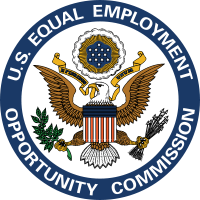According to the EEOC, the answer to that question is not only “Yes,” but that any severance agreement which limits the employee’s right to file a charge of discrimination is unenforceable and illegal. This week, the EEOC filed suit against College America for placing unlawful conditions on a severance payment made to a former employee. The contested parts of the agreement included her promise to not file a complaint with a government agency or to disparage CollegeAmerica. The lawsuit, and the specific language at issue, can be found  here.
here.
The EEOC also filed a similar suit against CVS Pharmacy Inc., challenging what it claimed was an overly broad severance agreement. The EEOC’s position is that: “Rights granted to employees under federal law, like the right to file charges of discrimination and participate in EEOC investigations into alleged discrimination in the workplace, cannot be given up in agreements between private parties.”
As a practical matter, the EEOC’s position is a tough one to swallow for most employers. After all, it would seem unfair for an employer to pay a departing employee for a release, and then turn around and defend a charge filed by the employee with the EEOC. The employer is clearly not getting the expected value of the settlement, and the EEOC’s policy, if it becomes the law, would discourage private settlements (which is ultimately bad for employees). Faced with an employee who pursues a charge, notwithstanding a release, employers must decide whether to try to rescind the release (which is not really a better deal) or to argue that, although the employee may have a legal right to file a charge, the employee cannot recover any relief per the waiver in the severance agreement (a position which most courts have followed).
The takeaway from these new lawsuits is that severance agreements should be carefully scrutinized by experienced employment lawyers, and employers should be aware that a release may not “really” be a release when it comes to discrimination claims.


Leave a Reply